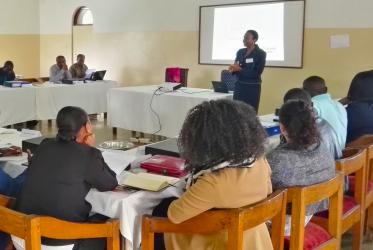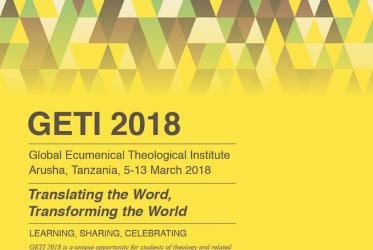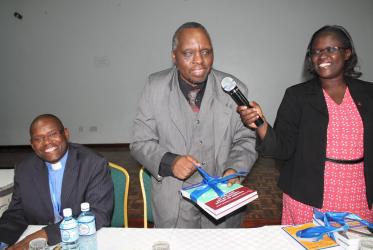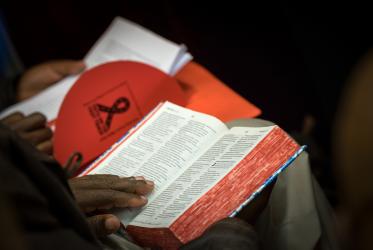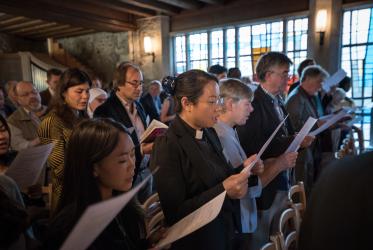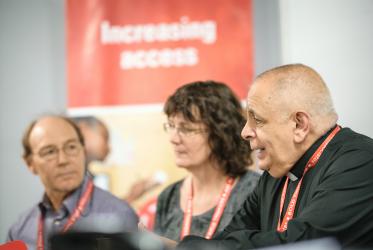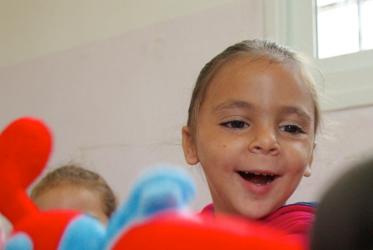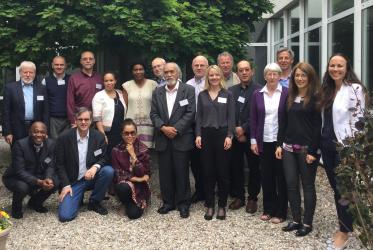Displaying 41 - 60 of 73
05 September 2017
African youth takes stand at first ever WCC Eco-School
03 August 2017
Nigerian breaks down stereotypes on Muslims
13 July 2017
Applications open for WCC Eco-School
10 May 2017
Bossey’s new missiology professor shares world of Africa and Europe
01 February 2017
New theological materials offer fresh perspective on disabilities
08 December 2016
Bible study gives hope as youth reflect on HIV
02 November 2016
Honest talk blossoms between youth, theologians in Cote d’Ivoire
14 September 2016
Ecumenical educators plan global institute
25 May 2016
WCC conference explores ecological injustice in Uganda
21 April 2016
Basel University honors Ghanian Methodist theologian
09 December 2015
